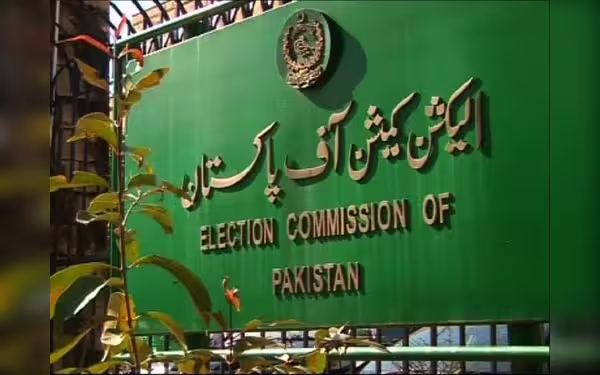Thursday, July 4, 2024 05:44 PM
Pakistan's Ruling Coalition Faces Setback in Parliament
- 77 lawmakers suspended for denied reserved seats to Sunni Ittehad Council
- Significant impact on National and provincial assembly compositions
- PML-N emerges as largest party in National Assembly after seat reallocation
 Image Credits: tribune_pk
Image Credits: tribune_pkThe ruling coalition in Pakistan faces a setback as 77 lawmakers are suspended for denying reserved seats, reshaping the political landscape and emphasizing fair representation.
In a recent development, the ruling coalition in Pakistan encountered a significant setback in parliament. The Election Commission of Pakistan took the decision to suspend the membership of 77 lawmakers who had previously been elected on reserved seats that were initially denied to the Sunni Ittehad Council. This action was a result of the Supreme Court's order and an appeal made by the SIC. As a consequence of these suspensions, adjustments may be required in the composition of the National and provincial assemblies.
The affected lawmakers represented various political parties, including PML-N, PPP, JUI-F, MQM-P, and others. The suspension of reserved seats for women and minorities had a notable impact on the assemblies of Khyber Pakhtunkhwa, Punjab, and Sindh. The Election Commission of Pakistan redistributed these seats to the ruling parties, leading to significant changes in the assembly compositions.
Following the reallocation of seats, the PML-N emerged as the largest party in the National Assembly. It is important to note that the process of allocating reserved seats is guided by specific constitutional provisions and the Elections Act, ensuring fair representation for women and minorities.
The suspension of lawmakers and the subsequent redistribution of reserved seats have reshaped the political landscape in Pakistan. This event underscores the importance of upholding constitutional provisions to guarantee equitable representation in the country's legislative bodies. As the affected parties navigate these changes, the impact on governance and decision-making processes remains to be seen.













